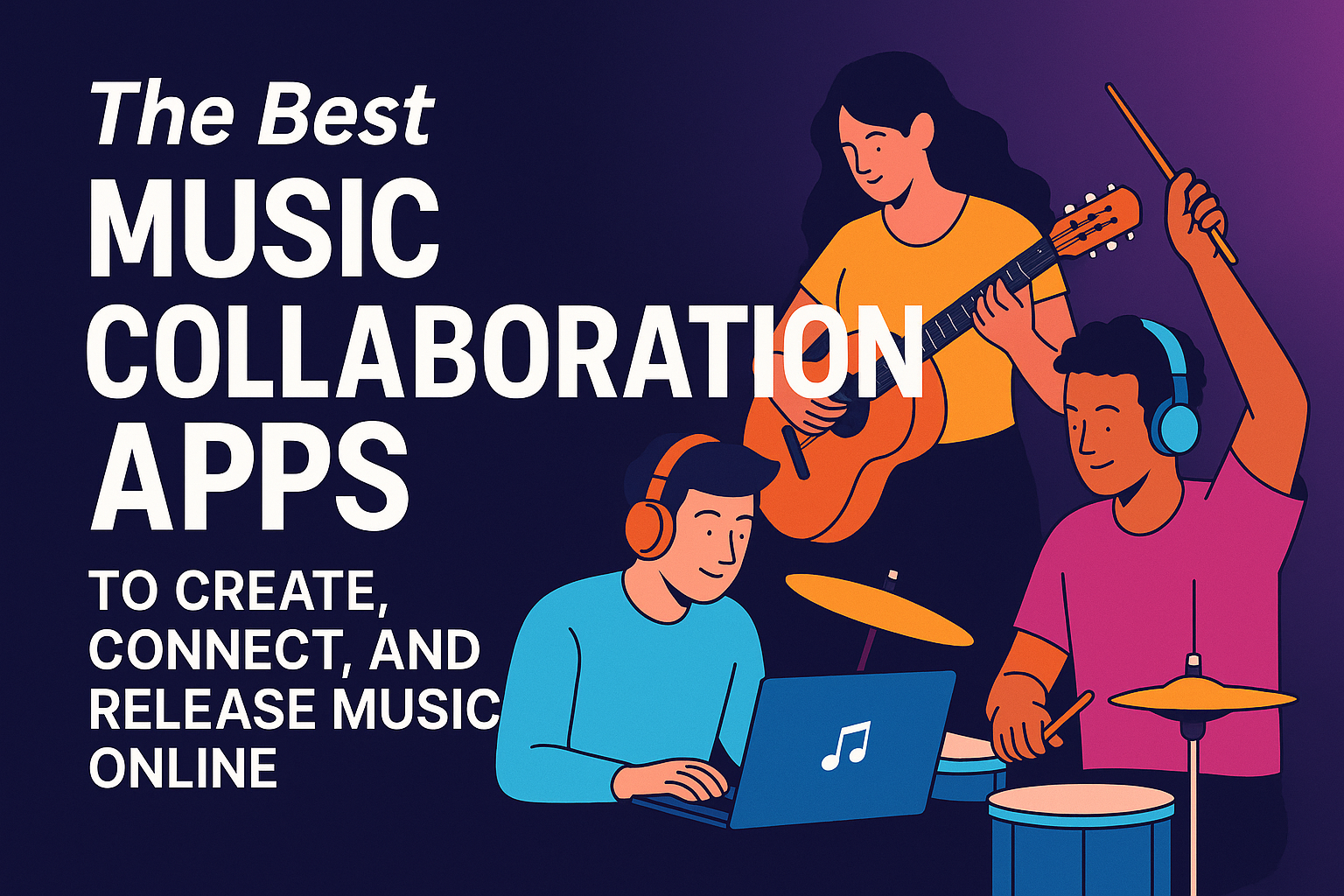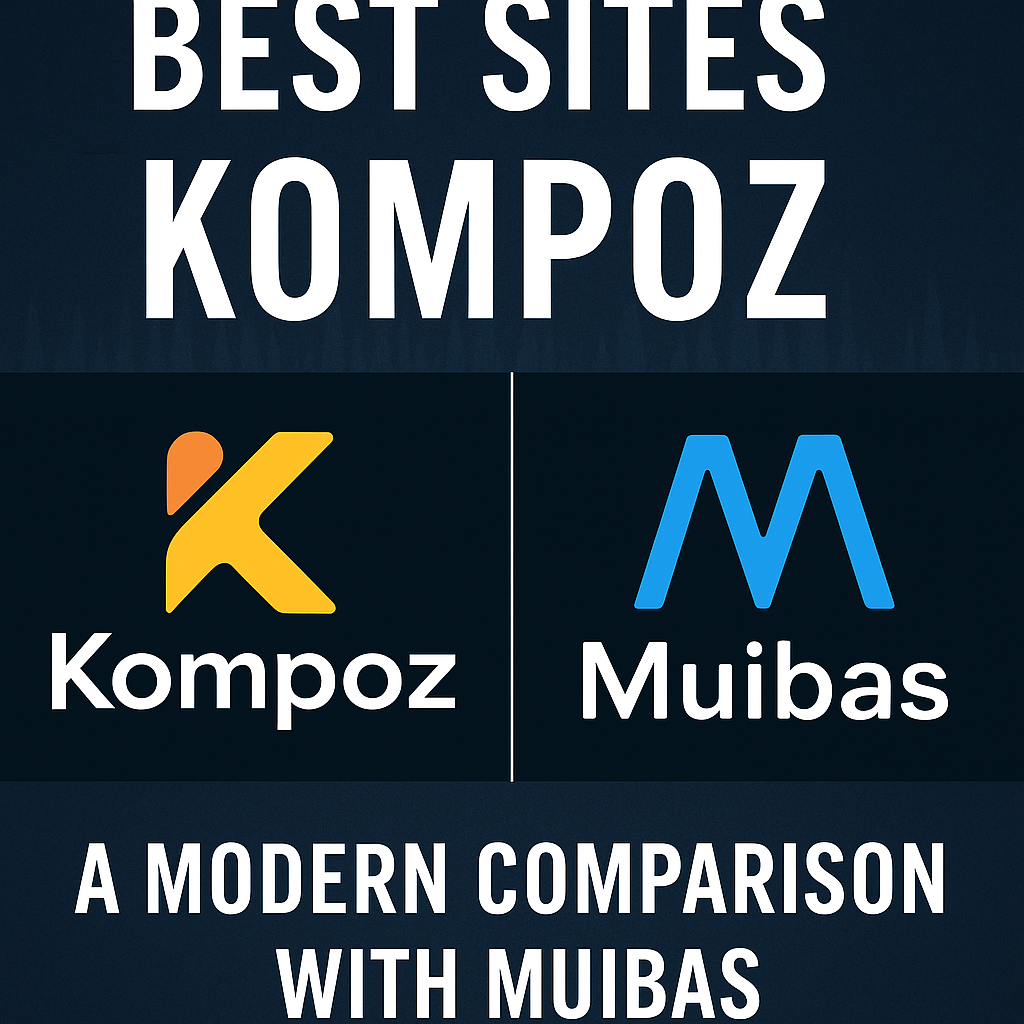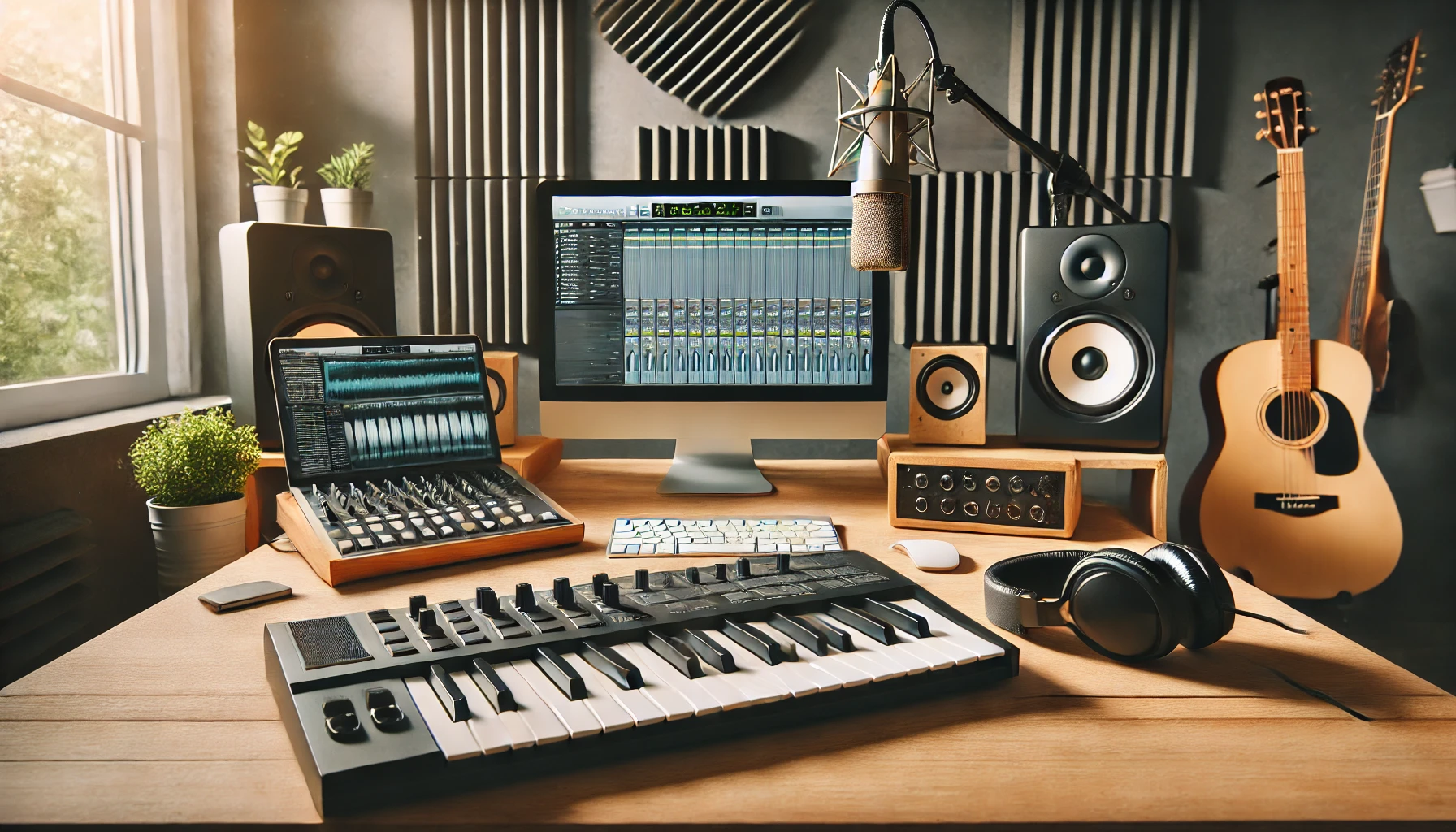🎼 The Best Music Collaboration Apps to Create, Connect, and Release Music Online
In a world where musicians are more global and connected than ever, the way we make music has completely evolved. You no longer need to be in the same studio, the same city — or even the same country — to create powerful, professional music with others.
Welcome to the world of music collaboration apps — where creativity meets technology, and where your next bandmate or co-writer might just be one message away.
🌍 What Are Music Collaboration Apps?
Music collaboration apps are platforms designed to help musicians work together remotely. They give you the tools to record, share, and refine music projects — whether you’re a solo producer looking for a singer, or a band missing a drummer for your latest track.
Think of these apps as virtual studios, file hubs, chat spaces, and creative networks rolled into one.
With the right collaboration tool, you can:
-
Start new music projects from scratch
-
Find musicians to join your tracks
-
Exchange track versions and feedback
-
Finalize, export, and release music with collaborators
⚙️ Core Features You’ll Find in Most Music Collaboration Apps
Not every platform is built the same, but here are some key features to look for:
-
File upload and sharing (WAV, MP3, STEMs)
-
Instrument-specific collaboration slots
-
Track revisions and version control
-
Real-time or threaded commenting
-
Project management tools (naming, status, feedback)
-
Direct messaging or group chats
Some apps focus more on production tools, while others emphasize social interaction and community. Choosing the right one depends on how you like to work.
🎸 Top Music Collaboration Apps to Try Right Now
1. Muibas – A Modern Platform for Structured, Creative Collaboration
Muibas is a newer music collaboration platform designed with flexibility and real-world workflows in mind. It’s built for musicians who want structure in their projects — but also need creativity to flow easily.
What makes Muibas different?
-
Instrument Slot System: You can assign roles (e.g. drums, bass, vocals) to be filled by collaborators, and each slot can hold multiple variations — giving you options to choose the best take.
-
Version Control: Keep all versions of every track for easy reference and comparisons.
-
Communication Tools: Chat and comment directly inside your project for seamless feedback.
-
Flexible Uploads: Works from desktop, tablet, or phone. Also supports Dropbox and Google Drive integrations.
-
Free to Use: No upfront costs, no complicated tiers.
-
Community Discord: Meet other musicians, share work-in-progress, or ask for feedback directly. Join here
Whether you’re a solo artist needing a vocalist, or a full band working across time zones, Muibas makes it easy to collaborate, organize, and finish your songs.
2. Kompoz
Kompoz has been around for years and offers a large public community of music creators. You can post open projects and anyone can contribute.
Pros:
-
A large and diverse musician base
-
Multiple genres represented
-
Easy to browse and join projects
Cons:
-
Less flexible with track revisions
-
Interface can feel outdated
-
Limited features on the free plan
3. BandLab
BandLab combines an online DAW (digital audio workstation) with social features.
What it does well:
-
Works in-browser and via mobile
-
Good for basic tracking and mixing
-
Mastering included in the free version
Limitations:
-
Focused more on solo music-making than structured team collaboration
-
Limited organization tools for bigger projects
4. Soundtrap by Spotify
Soundtrap is another online DAW that supports live collaboration. It’s great for producers and songwriters who want to build full tracks digitally.
Pros:
-
Great tools for synths, loops, and voice
-
Real-time editing across devices
-
Built-in automation and MIDI support
Cons:
-
More focused on production than on musical community
-
Premium features are locked behind a paywall
🛠️ What You Need to Collaborate Online
If you’re new to online music collaboration, here’s a quick checklist of what you’ll need to get started:
1. A Basic Recording Setup
You don’t need a professional studio. At a minimum:
-
A decent microphone
-
An audio interface (Focusrite, Behringer, etc.)
-
Recording software (GarageBand, Ableton, FL Studio, etc.)
-
Headphones or monitors
2. Internet Connection
Fast enough to upload and download WAV or MP3 files.
3. Platform Account
Register on a platform like Muibas.com, and start creating or joining projects.
4. A Positive, Open Mindset
You’ll be working with different styles, cultures, and experiences. Respect and communication are everything.
👥 How to Start Collaborating
Here’s a simple process to follow:
Step 1: Sign Up on a Platform
Start with a platform like Muibas. It’s free, and designed for structured, productive collaboration.
Step 2: Join the Community
Jump into the Muibas Discord Server — it’s where ideas fly and musicians gather to connect, collaborate, and give feedback.
Step 3: Create or Join a Project
If you have an idea, start your own project. Upload your demo or track stem, define which instruments you need help with, and wait for collaborators to hop in.
Or — browse open projects and contribute!
Step 4: Exchange Files and Feedback
Once collaborators are onboard, they can upload takes or revisions. You can comment directly on tracks, keep versions organized, and keep the creative flow moving.
Step 5: Finalize and Share Your Song
Once the parts are locked in, finalize the song, export, and share with the world!
🙌 Final Thoughts
Online music collaboration is no longer a future concept — it’s a present-day reality. With platforms like Muibas, musicians from around the globe are co-writing, recording, producing, and releasing incredible music every single day.
Whether you’re a seasoned producer or a bedroom guitarist with a killer riff, there’s a place for you in this new wave of global creativity.
Don’t wait for the perfect team to appear. Go out and find them.
🎧 Ready to collaborate?
Start your journey on Muibas.com and join the Muibas Discord to meet your future bandmates today.


